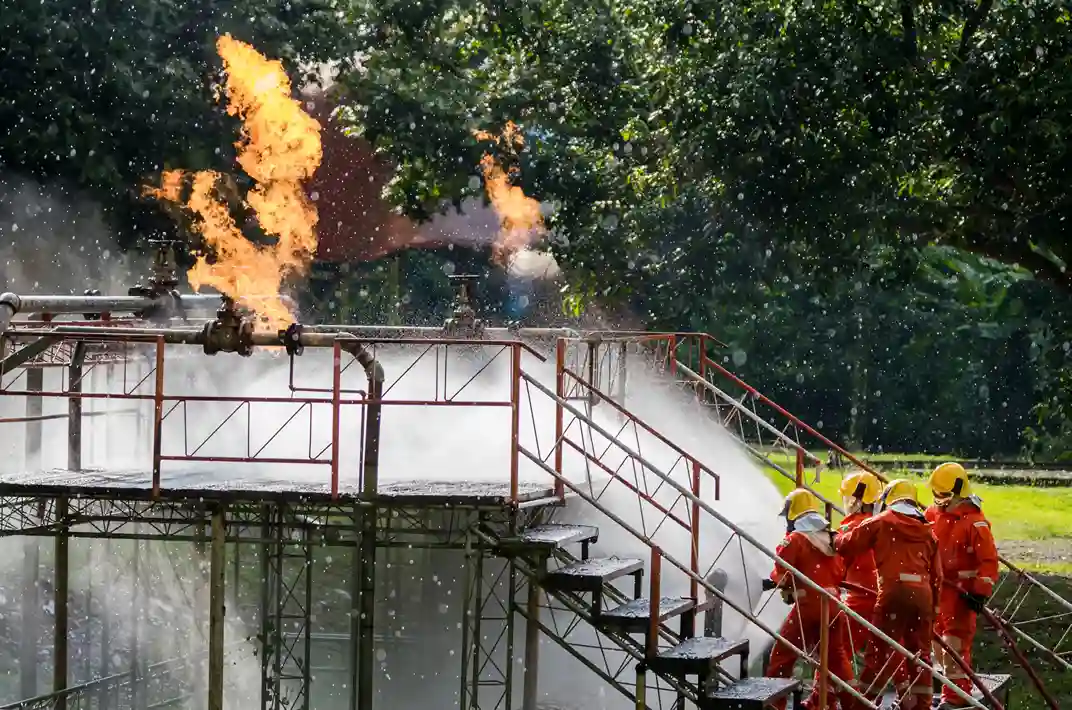Signs of a Natural Gas Leak: Symptoms, Causes, and What to Do for Safety

Natural gas is a common energy source in homes and businesses, and it is appreciated for its efficiency and cost-effectiveness. But like any utility, it comes with risks. A natural gas leak can lead to serious health hazards and even life-threatening situations. Understanding the symptoms of gas leaks, its causes, and how to respond can protect you and your loved ones. This guide will help you identify potential gas leaks, detect their signs, and take appropriate action.
Is Natural Gas Safe to Use?
Yes, natural gas is generally safe to use when handled properly. It’s odorless in its natural state, but utility companies add a harmless chemical called mercaptan, giving it a distinct “rotten egg” smell to help detect leaks. However, safety depends on regular maintenance and being vigilant about the signs of a natural gas leak.
Common Signs of a Natural Gas Leak
Detecting a gas leak early can prevent devastating outcomes. Here are the most noticeable signs of natural gas leaks:
- Smell: The distinctive “rotten egg” odor is the most common indicator.
- Sound: Hissing or whistling sounds near gas lines or appliances.
- Visual Cues: Dead vegetation or grass patches near pipelines, bubbling in water, or white, dusty clouds around the area.
- Appliance Performance: Faulty operation, including pilot lights repeatedly going out.
Causes of Natural Gas Leaks
Understanding the causes of gas leaks can help you prevent them. Some common reasons include:
- Faulty Appliances: Worn-out gas seals, loose connections, or poorly installed devices.
- Damaged Pipelines: Construction work or natural disasters like earthquakes may damage gas lines.
- Corrosion or Wear: Gas pipes may degrade over time, leading to leaks.
- Improper Ventilation: Accumulated gas due to blocked or faulty vents.
Physical Symptoms of Gas Exposure
Exposure to natural gas can have adverse health effects. The symptoms of gas leak exposure include:
- Mild Symptoms: Headaches, dizziness, nausea, or fatigue.
- Severe Symptoms: Difficulty breathing, chest pain, or confusion.
- Long-term Exposure: Prolonged contact may lead to unconsciousness or death due to asphyxiation.
If you or your family experience these symptoms, seek fresh air immediately and consult a medical professional.
What Are the Symptoms of Natural Gas Poisoning?
The signs of natural gas poisoning include:
- Difficulty breathing
- Chest tightness
- Blurry vision
- Loss of consciousness in severe cases
Immediate medical attention is crucial if you experience any of these symptoms.
What Should I Do If I Smell Gas in My House?
Follow these step-by-step instructions if you suspect a gas leak:
- Evacuate Immediately: Leave the building and ensure everyone else does too.
- Avoid Turning Anything On or Off: Lights, fans, or electronic devices.
- Call 911: Report the emergency from a safe distance.
- Schedule Professional Gas Line Repairs: Contact licensed professionals to inspect and repair the gas line leak.
How to Detect a Gas Leak in Your Home
Being proactive about gas leak detection is essential for safety. Here’s how to identify leaks effectively:
- Use Your Senses: Smell, listen, and look for the common signs.
- Gas Detectors: Install natural gas detectors in key areas of your home for early alerts.
- Soap Test: Apply soapy water to gas connections. If bubbles form, there’s a leak.
What Should Not Be Done If You Suspect a Gas Leak?
If you suspect a gas leak, avoid actions that can spark ignition:
- Do not light matches, candles, or any open flames.
- Avoid using electronic devices, including phones and light switches.
- Refrain from locating or repairing the leak yourself unless you’re a certified professional.
How Can I Prevent Natural Gas Leaks in My Home?
Preventive measures can save lives and property. To minimize risks:
- Schedule annual inspections of gas lines and appliances.
- Replace worn-out or corroded gas pipes.
- Install a natural gas leak detection system.
- Maintain proper ventilation in areas using natural gas appliances.
Can a Gas Leak Occur Outside?
Yes, outdoor gas leaks are just as dangerous. Look for:
- Dead plants or grass along the gas line.
- Dirt blowing into the air without wind.
- Persistent bubbling in puddles or streams.
Are Gas Leaks Dangerous?
Absolutely. Gas leaks pose risks of explosion, fire, and natural gas poisoning. Accumulated gas in confined spaces can displace oxygen, leading to suffocation.
What Does a Natural Gas Leak Smell Like?
Natural gas is odorless, but with added mercaptan, it smells like sulfur or rotten eggs. If you detect this odor, it’s a clear sign of a gas leak.
How Long Can a Gas Leak Go Undetected?
Gas leaks may go undetected for days if the smell isn’t noticeable or leaks occur in outdoor pipelines. Regular inspections and gas detectors can prevent this.
Safety First with Professional Help
When it comes to gas leaks, quick action and professional help are your best safeguards. If you suspect a leak, follow the steps above and ensure your home is safe by scheduling repairs with experts. At On Point Plumbing DFW, we specialize in gas line inspections, repairs, and ensuring your safety. Don’t wait—contact us today to secure your peace of mind.
